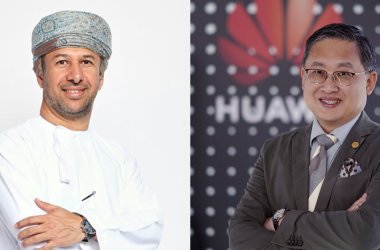
Humanity’s conventional way of doing business could soon evolve into an age where consumers offer adigitally driven services to businesses, instead of paying with money, according to a leading Saudi professor.
An Amazon bestselling author, and associate professor of technology, education and sociology at Saudi Arabia’s King Faisal University, Dr Abdul Al Lily has written a number of internationally acclaimed books, including The Bro Code Culture of Saudi Arabia, which has been translated into Chinese and Spanish and discusses behavioural norms in the Kingdom.
He has now claimed that advances in technology, combined with markets for new types of digital services, will create a whole host of new ways that consumers can obtain goods and services without forking out their hard-earned cash.
“The traditional trading model has dominated human society for a long time, yet there has not been a serious attempt to find an alternative,” Al Lily told tahawultech.com. “Although education and technology have made customers remarkably more able than ever before, businesses have not yet exploited their ability, and have focused only on the capital of customers.”
Al Lily believes that consumers could offer more than just currency. “In this service-to-service economy, instead of a business offering a service to a customer in exchange for money, the customer offers a service in return to the business,” he says. “By implementing this model, the concentration of businesses will shift from thinking about how to get customers’ money, to thinking about how to utilise customers’ human (e.g. social and intellectual) potential. Hopefully, there will be a transformation from efforts which currently exploit the monetary capital of customers, to efforts to use their human capital.”
Al Lily offers a vivid metaphor for the service-to-service economy – one that encourages a symbiotic relationship between consumers and producers is possible. “The concept of service-to-service trading is inspired by the trading relationship between bees and flowers,” he says. “The service-to-service economy is already a reality in the kingdoms of animals and plants. In terms of trade, some animals and plants are more advanced than humans. When a bee lands on a flower, who benefits: the bee or flower? The answer is that they both do, in the sense that the bee uses the flower for food, while the flower uses the bee for fertilisation. Bees and flowers are mutualists. A business and customer should be mutualists as well, with mutualism (a service-to-service relationship) between them.”
While technology giants such as Facebook and Google have built their success on the ability to harvest user information while offering free services to consumers, Al Lily believes there is incredible potential for the ways that consumers can serve business needs. “A service-to-service economy expands the efforts of Google, Facebook and other companies, by transferring their online-based model to offline settings,” he says. “Digital advertising has been the main service that consumers can offer. In other words, the service-to-service model has been implemented only in the form of service-to-ad trading, with a business offering a service to a customer, who agrees to see advertisements. This should go beyond service-to-ad trading. The service-to-service economy has been implemented mainly in online settings, with a limited impact on the real world.”
In order to truly transform businesses across the world, Al Lily believes this model has to be translated into all walks of life. “Service-to-service trading should be implemented offline too, with a customer being able to walk into a clothing store or a bookstore and get served for free in exchange for a service of a different kind that the customer offers,” he says. “This service can be as simple as clothes having advertisements on them, or books having ads on the front or back cover, or even throughout the book. Another example is that a gym may offer a free membership in exchange for being allowed to collect detailed information on how members exercise, and being able to trade this information.” Al Lily even takes this one step further, and says that gym customers could even deliver electricity-as-a-service in a Black-Mirror-style vision of the future. “The gym may also sell the energy that the members generate while exercising – if human-generated energy becomes important in the future.
“In a restaurant, customers could receive free meals in exchange for them completing a survey on sleeping-habits conducted by a third party, such as a psychological research organisation. In this case, this psychological association pays for customers’ meals. Another example is that a hotel could offer free accommodation in return for a review that the customer shares either on their website or with ten friends.”





